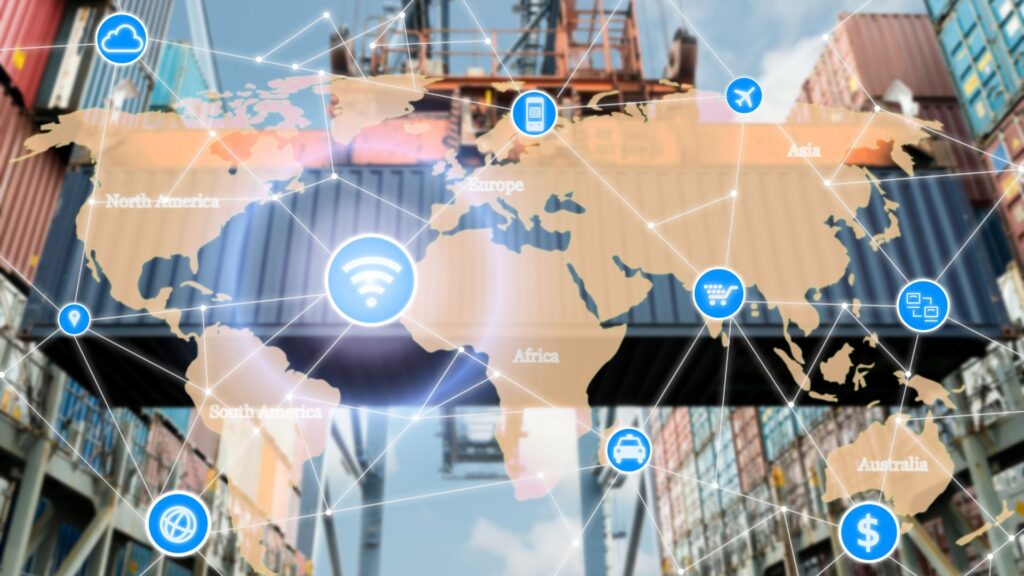Last Thursday 16 June, we were invited to a round table of experts in innovation and startups with the theme: digital transformation in ports. AspBAN, with whom we had already collaborated in previous events related to the blue economy, organised the event.
Adriaan Landman, COO and Co-Founder, represented AllRead in this debate. He was accompanied by Nagore Ardanza, Coordinator of the Port of Bilbao; Guillermo Fernández, Open Innovation Specialist at the Port of Valencia Foundation; Hugo Duarte da Fonseca, partner and director of Maeil, and members of AspBAN.
The aim of the meeting was to raise awareness of potential opportunities to foster collaboration between startups and ports.
AspBAN: an initiative for the blue economy in ports
The AspBAN (Atlantic smart ports blue acceleration network) is a project funded by the European Union, and therefore focused on the development of a dynamic acceleration platform to help EU ports to function as blue economy hubs.
By becoming the main playing field for the development of new maritime businesses, EU Atlantic ports have the opportunity to diversify their revenue streams and work towards a sustainable ocean economy. As one of the points of contact with the ocean, they play a strategic role as launching pads for a new generation of blue businesses.
Actions for Digital Transformation in Ports
The digital transformation in the maritime-port sector involves challenges, opportunities and advantages in which Artificial Intelligence plays a crucial role. It offers innovation and the ability to be competitive in an environment as dynamic, uncertain and complex as the globalised economy in which we find ourselves. But for this to happen, ports must do their part.

Throughout the event, both participating ports insisted on the need to take action to become smart ports and maintain their competitiveness. Highlights:
- The Port of Bilbao already has an action plan in place that includes the creation of projects such as Bilbao Portlab, an innovation hub, and the creation of events dealing with topics such as sustainability and digitalisation, in collaboration with other important players in the industry.
- On the other hand, the Port of Valencia is not sitting on its hands either. Thanks to the Valencia Port Innovation Hub initiative, they are seeking to boost the innovative environment by bringing together technology companies, startups and investors to collaborate on new innovation projects in port logistics.
These are just a few examples of existing port projects, as more and more ports join in working towards the same goal.
Collaboration between Ports and Startups
Much progress has been made in the industry in recent years to adapt to change and stay at the forefront of solutions, but there is still a long way to go.
The port sector is one of the most difficult to penetrate so far. This is how Guillermo Fernández put it, listing some of the problems it presents.
- Lack of awareness of the growth of innovation. It is a sector with a lot of innovative potential and a great economic capacity to invest in it.
- A very opaque sector. Very few people know exactly the management process and the roles and responsibilities of all the agents that make up the ports.
- Recent digitalisation, it still maintains a very traditional mentality.
«To support startups, ports should establish greater connections with them. Open up and show what areas they want to innovate in and what their needs are, so that they can understand the sector and become familiar with it, and continue to contribute with financial support and mentoring to meet their business goals and establish solid business plans.»
Guillermo Fernández, Open Innovation Specialist at the Port of Valencia Foundation
Access for Startups to the Port Industry
Successful collaboration between startups and ports, according to Adriaan Landman, COO of AllRead, is no easy task. Some of the barriers to entry that startups, especially tech startups, face are:
- Access the right person to propose and launch a project.
- Obtain credit as a start-up company.
- Complexity and long decision-making times.
- Bottlenecks caused by other projects.
- The variety of regulations: data protection, information security or integration with systems.
How to Foster Collaboration with Startups
Landman also presented some ideas to encourage port innovation:
- Drive collaboration in innovation from the operational areas.
- Encourage a more open mentality to try new solutions.
- Have specific budgets for innovation.
- Have an overall strategic vision of the port’s digitisation, but move forward in small steps, through sub-projects.
- Avoid innovating for the sake of innovating, but make sure that each project has a potential for future implementation to meet a real need of the port.
He also commented that ports would benefit greatly from a greater sense of urgency in the situation. The need to digitise and increase their competitiveness is a critical issue. There is a butterfly effect in low productivity. If bottlenecks are created in the ports, it is something that ends up affecting them globally.
At AllRead, we develop cutting-edge machine vision software for intermodal asset traceability. We want to lift the technological and financial barriers to the adoption of access control solutions for ports of all sizes, for all types of transport.

If you want to keep up to date with the latest news from about technology in port logistics and utilities, subscribe to our newsletter. You will regularly receive the most important content and news from our blog in your mailbox.
Follow us also on our social profiles in LinkedIn, Twitter, YouTube, Instagram and Facebook.